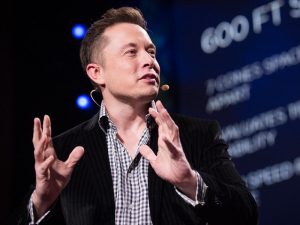 A group of investors with a stake in Tesla have called into question the board’s independence. The investors have argued that the Tesla board is suffering from groupthink and doesn’t possess the capacity to stand up to or challenge Elon Musk, the electric carmaker’s chief executive officer. In a letter, the investors called for the addition of 2 independent directors to Tesla’ board.
A group of investors with a stake in Tesla have called into question the board’s independence. The investors have argued that the Tesla board is suffering from groupthink and doesn’t possess the capacity to stand up to or challenge Elon Musk, the electric carmaker’s chief executive officer. In a letter, the investors called for the addition of 2 independent directors to Tesla’ board.
“While meeting the technical definition of independence, five of the six current non-executive directors have professional or personal ties to Mr Musk that could put at risk their ability to exercise independent judgment,” part of the letter written by the investors read.
Cross interests
Other directors who sit on the board of Tesla and who are considered as being close to Musk include Antonio Gracias, a board member and a shareholder of SpaceX, another firm founded by Elon Musk and in which he also serves as its chief executive officer.
Road ahead
In their letter, the investors cited various issues which necessitated the recruitment of independent directors and this included the upcoming launch of the Tesla Model 3 mass-market electric vehicle, SolarCity’s integration with Tesla, the beginning of battery manufacture at the Nevada plant and Tesla’s consistent losses. Some of the investors who signed the letter include the CtW Investment Group, Hermes Equity Ownership Services, California State Teachers Retirement System, among several others. Collectively, these investors manage assets valued at approximately $721 billion.
In response to the investors, Musk took to Twitter and suggested that the investors should instead put their money on a rival carmaker, Ford. In subsequent tweets, Musk said he had already considered the need for more independent directors and promised to announce progress in the near future before adding that this had not been motivated by the disaffected group of investors.
The investor disquiet comes at a time when Tesla briefly emerged as the most valuable publicly traded car manufacturer in the United States. This was after Tesla surpassed the market capitalization value of Ford first and then that of General Motors.
